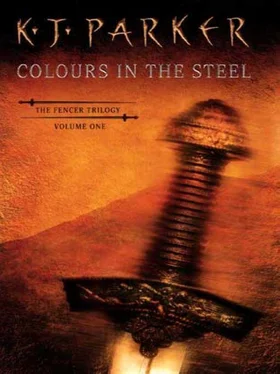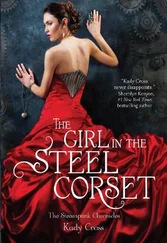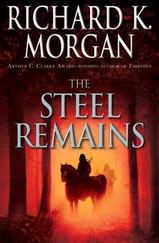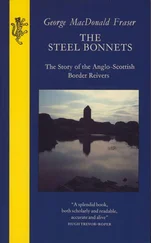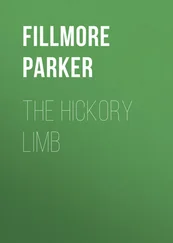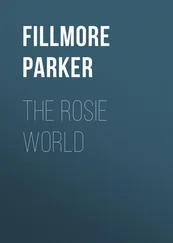K Parker - Colours in the Steel
Здесь есть возможность читать онлайн «K Parker - Colours in the Steel» весь текст электронной книги совершенно бесплатно (целиком полную версию без сокращений). В некоторых случаях можно слушать аудио, скачать через торрент в формате fb2 и присутствует краткое содержание. Жанр: Фэнтези, на английском языке. Описание произведения, (предисловие) а так же отзывы посетителей доступны на портале библиотеки ЛибКат.
- Название:Colours in the Steel
- Автор:
- Жанр:
- Год:неизвестен
- ISBN:нет данных
- Рейтинг книги:4 / 5. Голосов: 1
-
Избранное:Добавить в избранное
- Отзывы:
-
Ваша оценка:
- 80
- 1
- 2
- 3
- 4
- 5
Colours in the Steel: краткое содержание, описание и аннотация
Предлагаем к чтению аннотацию, описание, краткое содержание или предисловие (зависит от того, что написал сам автор книги «Colours in the Steel»). Если вы не нашли необходимую информацию о книге — напишите в комментариях, мы постараемся отыскать её.
Colours in the Steel — читать онлайн бесплатно полную книгу (весь текст) целиком
Ниже представлен текст книги, разбитый по страницам. Система сохранения места последней прочитанной страницы, позволяет с удобством читать онлайн бесплатно книгу «Colours in the Steel», без необходимости каждый раз заново искать на чём Вы остановились. Поставьте закладку, и сможете в любой момент перейти на страницу, на которой закончили чтение.
Интервал:
Закладка:
And this was the city where he was going to earn a good living as a metalworker. That didn’t seem right, somehow; with all this amazing knowledge and all these unbelievable machines and devices, how was it possible that he could know something they didn’t?
Had it been up to him, he wouldn’t have dared. But of course it wasn’t; so he tethered his horse outside the imposing bronze doors of the arsenal, found the rather less imposing side door, and went in.
Unlike most of his race, Temrai had been inside buildings before. He knew what it was like to be between walls and underneath a roof, and although he didn’t exactly like the experience, it didn’t bother him too much. This, however, was something else entirely. It was dark, like the inside of his father’s tent, and what little light there was consisted of a flickering red glow. That and the oppressive heat came from the enormous furnaces, from which bare-skinned sweating men tapped off streams of brilliant white molten iron into long rows of identical gang-moulds that clustered around the base of the furnace like piglets round a sow.
The noise was worse; at home, there was nothing that pleased Temrai more than the sound of the smith’s hammer, but these must surely be the hammers of the thunder-genies. When his eyes were a little more accustomed to the light, he was able to identify the source of the noise: a battery of what could only be gigantic mechanical hammers, vast wooden piles shod with iron or copper that were lifted by thick beams until some mechanism tripped them and let them fall. Behind the machine hammers he saw another giant wheel, similar to the one that had driven the bone mill but even larger still. Remarkable; these men made the river do their work for them. The very thought disturbed Temrai; it was like enslaving the gods. Except that, by all accounts, there were no gods in this city. Perhaps, Temrai reflected, with all these machines they didn’t need any.
‘You.’
He turned round to find a short fat man with two little feathers of white hair in either side of a shiny bald head staring at him. Temrai smiled.
‘You,’ the bald man repeated. ‘What do you want?’
Like all the other men in the building, this one was naked except for a little kilt of grubby white cloth. Understandable, Temrai thought, if you had to work in this heat all day, although with all the sparks flying about from the spitting furnaces, he reckoned he’d rather keep his shirt on and sweat. And this was the place he’d come to find work in. He felt a great urge to run away, but managed not to.
‘Please,’ he said, ‘I want a job.’
The man looked at him as if he’d just asked for a slice of the moon between two pancakes. ‘A job,’ he repeated.
‘Yes, please,’ Temrai said. ‘I’m from the plains. I’m a blademaker.’
The bald man raised both eyebrows, and nodded. ‘Are you indeed?’ he said; or rather, sang. If he lived here for the rest of his life, Temrai reflected (and gods forbid!) he’d never get used to that extraordinary way of speaking. It cost him dearly not to giggle.
‘Yes,’ Temrai replied, not certain what else he was supposed to say. ‘And I’ve brought some solder with me. Would you like to see?’
The man nodded; whereupon Temrai reached into his satchel and produced five sticks of the thin silver wire that these remarkable people were said to covet so much. The man took them from him reverently, as if he’d just been handed the soul of his grandmother.
‘You know how to use this?’ he asked.
Temrai nodded. ‘Also the ordinary brass and lead solder,’ he said. ‘And I can make wire and sheet and weld them for the cores, and forge the hard edges.’
‘Quite the young master,’ the man replied. ‘You don’t look old enough to be out of your indentures.’
‘Excuse?’
The man shook his head. ‘Indentures,’ he said. ‘Like you’re still a ’prentice. Forget it. Come over here.’
The part of the vast room the man led him to was mercifully quite close to one of the tall windows, and for the first time since he’d stepped through the door, Temrai felt as if he could actually see. There were anvils, properly set up on elm logs; racks of hammers, tongs and pincers, hardies, swags, fullers, mandrels and setts; all reassuringly familiar among the strange and wonderful things that crowded out the rest of the room. There was also a neat little brick hearth with a goatskin bellows, in which a sword blade was glowing dull red; and beside it sticks of spelter and lead solder, and an earthenware jar of flux. When he saw these, Temrai understood what was being asked of him and was instantly reassured.
In every part of the world, swords are made in approximately the same way; a soft iron core, around which hundreds of layers of iron wire or ribbon are wrapped before being heated and hammered into a single fused piece; and the separate cutting edges, made from old nails or horseshoes melted down, hammered, tempered, hammered again and baked in an oven with charcoal, dried blood and ground leather to make the iron into steel. By this method a blade can be made to take a true edge that will cut the softer materials from which helmets and armour are made, but which is not so brittle that any sort of hard blow will shatter it like a cup dropped on stony ground. Provided the smith has the basic skill and plenty of time and patience, the separate parts aren’t hard to make; the trick lies in joining the edges to the core, using solder and flux.
Temrai selected a pair of tongs, pulled the red blade out of the fire and examined it. The edges were wired to the core, and all down the join were little orange crumbs of glowing flux. He looked round, found the bucket of water and plunged the blade into it.
‘Sorry,’ he explained. ‘Wrong way.’
The bald man was scowling, but Temrai took no notice. When the blade was cool he cut the brittle wires with pincers and tapped the edges free of the core with a small hammer. From his satchel he took his own jar of flux – a ram’s horn hollowed out and full of the dusty white powder that constituted the most substantial part of his nation’s greatest miracle.
He shook out a few pinches of the powder onto a flat stone, nudged it into a heap and spat into it a few times; then he mixed with the tip of his little finger until he had a smooth, creamy paste. Taking care not to lay it on too thick, he smeared the core and the edges where they were to join, having first scraped off the old, baked flux with his small knife. The bald man handed him a length of wire, and he bound the blade up tight, making sure that the seams were true. Then he put it back into the small furnace and pumped the bellows enthusiastically until he could feel the heat pricking his legs.
‘We must get it hot,’ he explained, ‘or the silver won’t run.’
The difference – virtually the whole difference – was that here they used spelter (made from copper and zinc), or (even worse) soft solder made out of lead and tin. On the plains, they knew better. Three parts copper, one part zinc and six parts silver made a solder that flowed like water at a far lower heat and joined steel to iron in a way that spelter and lead never could.
When the blade was bright orange, Temrai took a stick of solder from his satchel, rolled it in what was left of the flux and spat down it for luck. Then he lifted the blade out of the heat and drew the stick along the join. As soon as the stick touched the blade, the solder melted and vanished into the thin crack, leaving only a trace of a white line under a greyish crust. When he’d done both sides, front and back, he returned the blade to the fire, recited the prayers to the swordsmith’s god under his breath (not because he expected the god to hear him in this distant place, but because that was how long it took to cook the solder deep into the joint), pulled the blade out and looked round for the pot of oil. There wasn’t one.
Читать дальшеИнтервал:
Закладка:
Похожие книги на «Colours in the Steel»
Представляем Вашему вниманию похожие книги на «Colours in the Steel» списком для выбора. Мы отобрали схожую по названию и смыслу литературу в надежде предоставить читателям больше вариантов отыскать новые, интересные, ещё непрочитанные произведения.
Обсуждение, отзывы о книге «Colours in the Steel» и просто собственные мнения читателей. Оставьте ваши комментарии, напишите, что Вы думаете о произведении, его смысле или главных героях. Укажите что конкретно понравилось, а что нет, и почему Вы так считаете.
